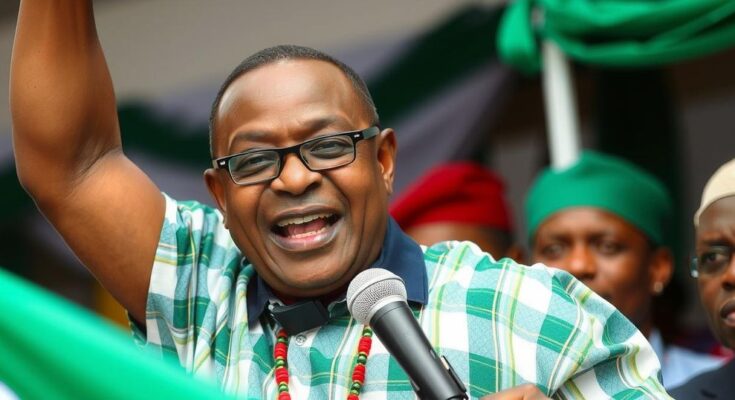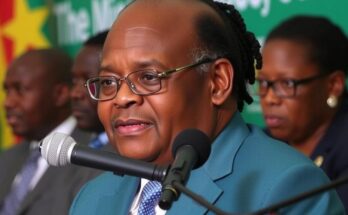John Dramani Mahama has won the presidential election in Ghana, marking his return to power after eight years. This victory, acknowledged by outgoing Vice President Mahamudu Bawumia, is attributed to public discontent with the current government’s handling of the economy amid high inflation and unemployment. The NDC also leads in parliamentary results, emphasizing the shift in voter sentiment against the ruling party.
Former President John Dramani Mahama has emerged victorious in the presidential election held in Ghana on December 7. Although the final results are still pending, outgoing Vice President Mahamudu Bawumia of the New Patriotic Party (NPP) acknowledged Mahama’s success on December 8. This victory marks Mahama’s return to power after eight years, having previously served as President from July 2012 to January 2017 before facing defeats in the 2016 and 2020 elections to former President Nana Akufo-Addo, who was barred from running again after serving two terms.
Additionally, the National Democratic Congress (NDC), which Mahama represents, appears to be leading in the parliamentary elections that coincided with the presidential vote. The Independent Electoral Commission of Ghana has called for patience from the electorate as it prepares to announce the final results, which were anticipated to follow a calm and peaceful electoral process, as noted by local bishops.
Mahama’s triumph is attributed to widespread discontent among voters regarding the economic crisis that has plagued the country, characterized by high inflation and youth unemployment. His promises to revitalize the economy are now overshadowed by the need to address a $3 billion loan the present government secured from the International Monetary Fund (IMF) for urgent financial needs. Moreover, public sentiment has been negatively influenced by various scandals involving officials from the previous administration. Despite being recognized as one of Africa’s more stable democracies, recent election cycles in Ghana experienced significant challenges, though the current elections were largely incident-free, with only a few reported fatalities due to gunfire.
The recent presidential election held in Ghana on December 7, 2024, has significant implications for the country’s political landscape. Former President John Dramani Mahama’s victory comes after a period of considerable economic difficulties for the nation, impacting voter sentiment and preferences. Ghana has a strong democratic tradition, and while past elections have faced challenges, including violence, the current electoral process has maintained relative peace. This context is vital in understanding the dynamics of the election and the implications for policy under Mahama’s administration.
In conclusion, John Dramani Mahama’s return to the presidency following the December 7 elections reflects a critical shift in Ghanaian politics, driven largely by public dissatisfaction with the current government’s handling of economic issues. The NDC’s lead in parliamentary elections further solidifies this shift, as the electorate seeks improvements in governance among prevalent economic challenges. Moving forward, Mahama’s administration will need to strategically address these pressing economic matters while ensuring stability within the political realm.
Original Source: www.fides.org




